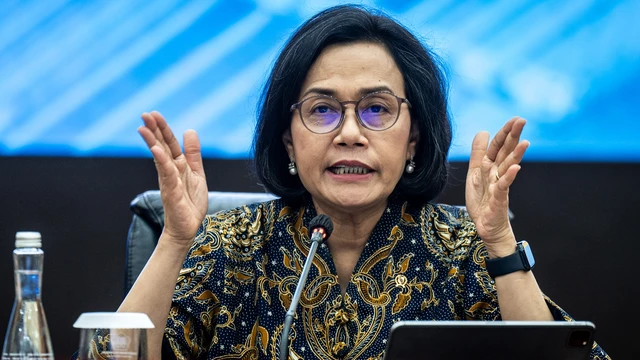Indonesia’s Finance Minister, Sri Mulyani Indrawati, has confirmed that the government will not introduce new taxes in 2026 despite ambitious revenue targets under the draft state budget (RAPBN) 2026. Instead, the administration will focus on strengthening tax reforms, internal system efficiency, and better allocation of state spending.
“For tax revenues of USD 154 billion, it means we must achieve 13.5 % growth. That is quite high and ambitious,” Sri Mulyani said on Monday, August 18, 2025, as quoted by MetroTV News.
She emphasized that the government’s strategy will not involve creating additional burdens for the public through new levies.
“There will be no new taxes. The policy remains aligned with existing laws, with a focus on internal improvements,” she stated earlier on august 15, during a press briefing on the 2026 Financial Note and Draft Budget.
Ambitious Revenue and Expenditure Targets
The 2026 state budget projects national revenue at approximately USD 206 billion, marking a 9.8 % increase compared to the previous year. This target will be driven primarily by tax revenue and improved customs and excise collection, even though non-tax state revenue (PNBP) is set to decline.
- Tax revenue is projected at USD 154 billion, up 13.5 % year-on-year.
- Customs and excise revenue is forecast at USD 21.8 billion, a 7.7 % increase.
- Non-tax revenue (PNBP) will drop 4.7 % to USD 29.7 billion, largely due to reduced state-owned enterprise dividends.
On the spending side, ministry and agency allocations will total USD 97.9 billion across 102 institutions.
Top 10 Ministries and Agencies by Budget
The National Nutrition Agency (BGN) takes the largest allocation, reflecting the government’s focus on food and health programs. Here are the ten institutions with the highest 2026 budgets:
- National Nutrition Agency (BGN) – USD 17.5 billion
- Ministry of Defense – USD 12.1 billion
- Indonesian National Police – USD 9.5 billion
- Ministry of Public Works – USD 7.7 billion
- Ministry of Health – USD 7.5 billion
- Ministry of Religious Affairs – USD 5.8 billion
- Ministry of Social Affairs – USD 5.5 billion
- Ministry of Higher Education, Science, and Technology – USD 4 billion
- Ministry of Primary and Secondary Education – USD 3.6 billion
- Ministry of Finance – USD 3.4 billion
Eight Key Government Priorities
The 2026 budget identifies eight priority programs:
- Food security – including new rice field development, subsidized fertilizer distribution, and affordable financing for farmers.
- Energy transition – accelerating renewable energy projects (solar, hydro, geothermal) with more targeted subsidies.
- Free Nutritious Meal Program (MBG) – covering 82.9 million beneficiaries, including students, pregnant women, and toddlers.
- Education – USD 49.5 billion, or 20% of the budget, allocated for teacher quality improvement and vocational training.
- Healthcare – expanding access to the National Health Insurance (JKN), hospital revitalization, and stunting reduction.
- Village development – through the Merah Putih Village Cooperative with low-cost financing from state-owned banks.
- Defense – modernization of primary weapons systems and strengthening of national strategic industries.
- Investment and housing – boosting productive investment via Danantara and providing 770,000 affordable housing units.
Sri Mulyani reiterated that revenue growth will rely on internal tax system reforms, including strengthening the Core Tax System, optimizing data exchange, expanding the tax base, and improving taxpayer compliance.
By choosing efficiency and reform over new levies, the government aims to balance fiscal resilience with public welfare. The ambitious revenue and spending plans signal Indonesia’s continued push for economic stability, social protection, and long-term growth.
Source: MetroTV News, NyalaNusantara
Photo Credit: ANTARA FOTO/Bayu Pratama S


